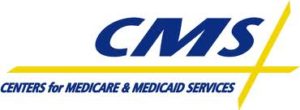Is Education More Important to Health Than Access?
A new report suggests that education is more important to an individual’s overall health than access to health care.
According to the Virginia Commonwealth University’s Center on Society and Health,
More education means better health – in part because more education brings better jobs, improved access to health insurance, and higher earnings that can help pay for medical expenses and a healthier lifestyle. Conversely, people with less education tend to have more challenges accessing health services – lower rates of health insurance coverage and less money to afford copayments and prescription drugs; they are also more likely to live in low-income neighborhoods with limited access to primary care providers.
 Improved access to health care may improve overall health but it will not necessarily compensate for the entire difference in health status between those with more and those with less education. In fact, the disparity even exists, the report notes, in countries like Great Britain where the entire population has access to the same national health care system.
Improved access to health care may improve overall health but it will not necessarily compensate for the entire difference in health status between those with more and those with less education. In fact, the disparity even exists, the report notes, in countries like Great Britain where the entire population has access to the same national health care system.
Learn more about the possible effects of education on health status here, in the Virginia Commonwealth University Center on Society and Health policy brief “Health Care: Necessary But Not Sufficient.”






